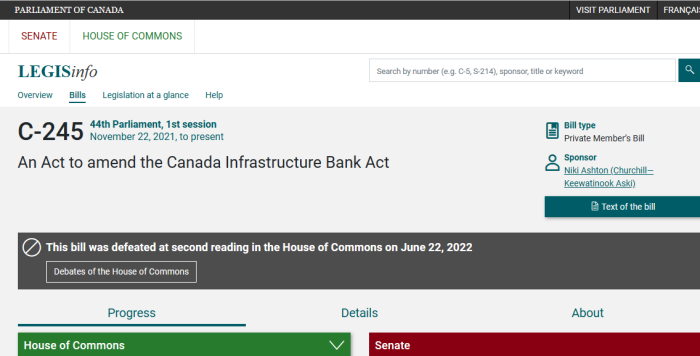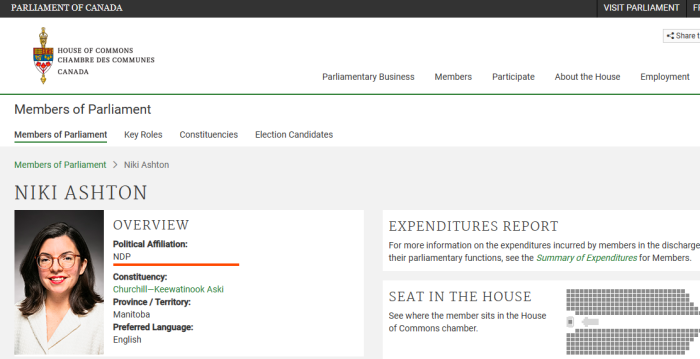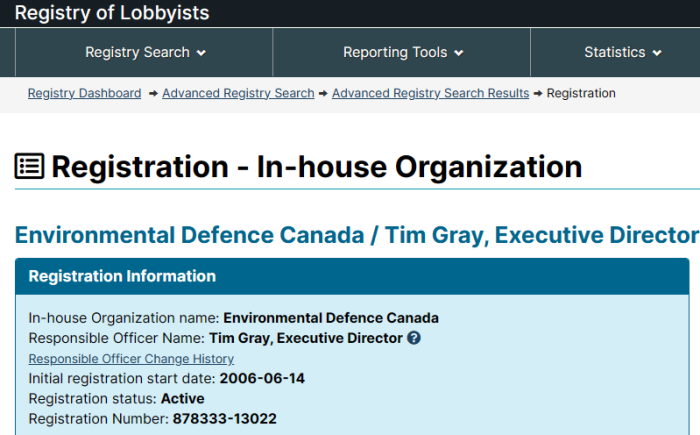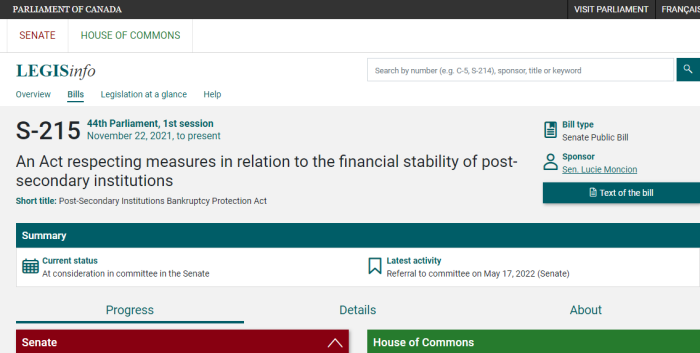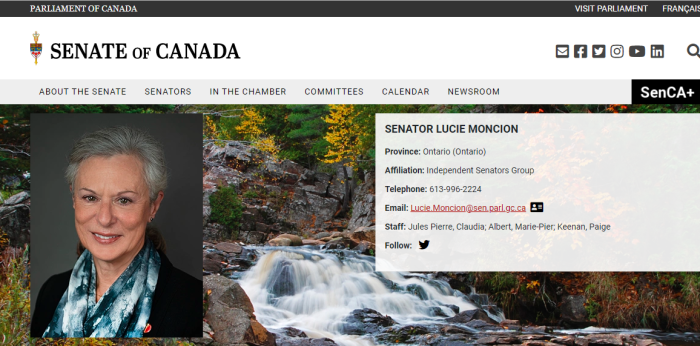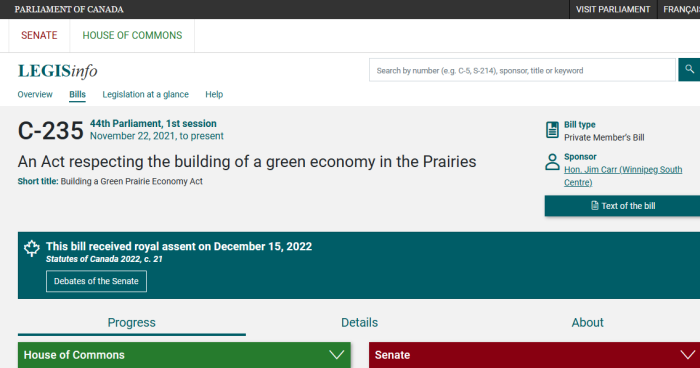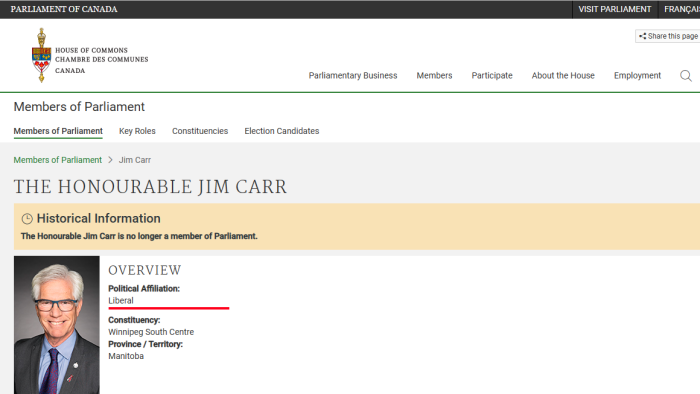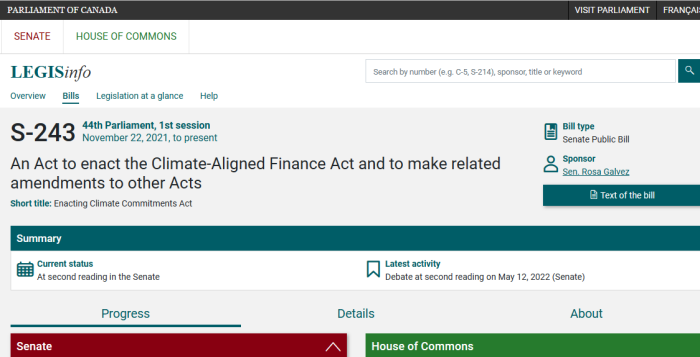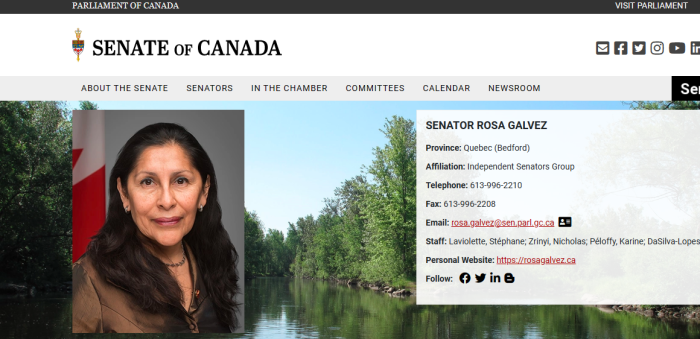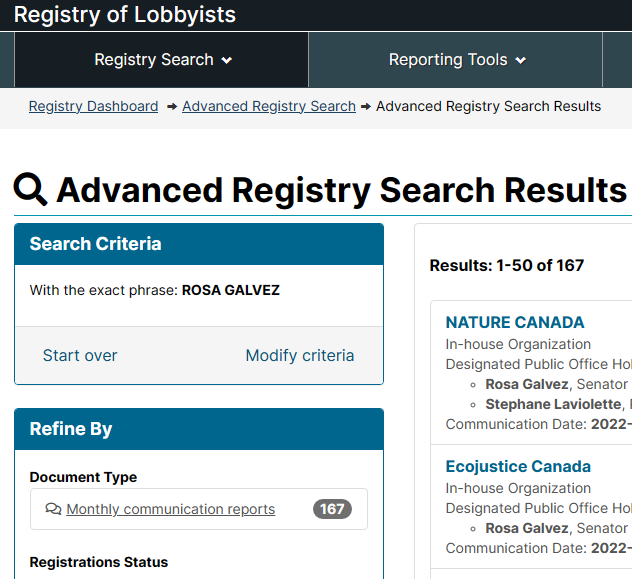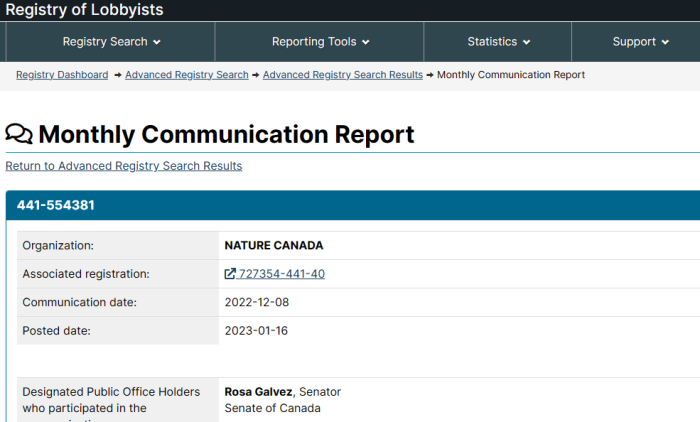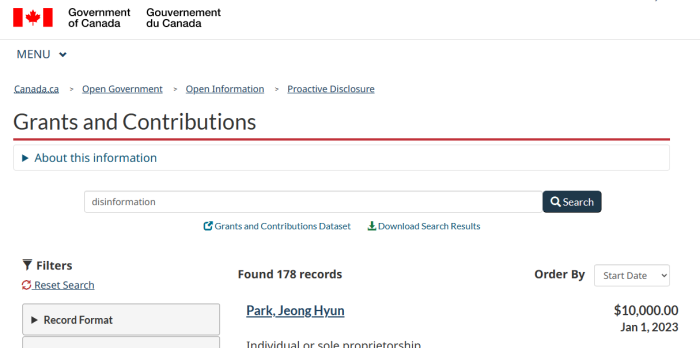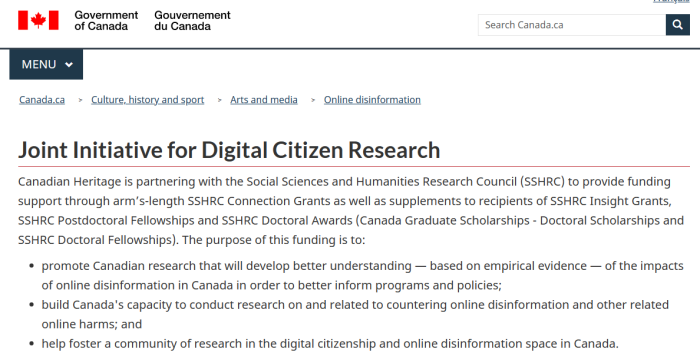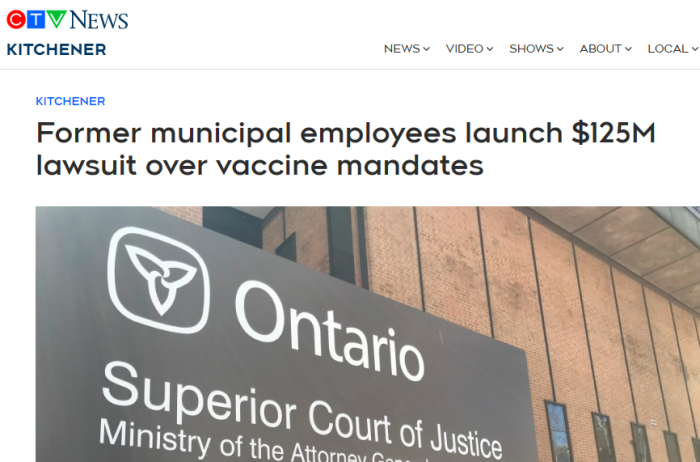
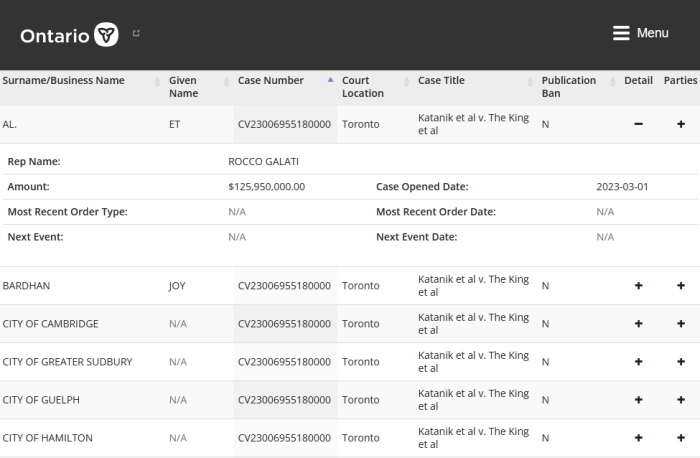
The grifting never ends, does it?
Monday, March 1, 2023, a lawsuit was filed in Ontario Superior Court, on behalf of over 100 Plaintiffs. It is essentially a cut-and-paste copy of a Claim that the Federal Court threw out just 2 weeks earlier.
Yes, a lawsuit that was struck for being “bad beyond argument” was simply repackaged and refiled to initiate another one. The lawyer involved was Rocco Galati, who works out of Toronto.
In fairness, CTV did announce this case, but let’s go into it in greater detail.
As for some recent decisions:
(1) Kulvinder Gill and Ashvinder Lamba filed a $12.75 million defamation case for mean words on Twitter. After it was — predictably — thrown out in February 2022 as a SLAPP (strategic lawsuit against public participation), Gill and Lamba were stuck with over $1 million in costs.
(2) Action4Canada brought a 391 page, rambling, incoherent Notice of Civil Claim (NOCC) to the B.C. Supreme Court. After it was struck in its entirety in August 2022 for being “bad beyond argument”, the Plaintiffs decided to appeal. This was in spite of the Judge allowing a rewrite.
(3) The Federal Court struck a case by over 600 Plaintiffs for being “bad beyond argument” in February 2023. The pleadings were impossible to follow, and heavily lifted from the Action4Canada case. Plaintiffs who were part of the Federal Government were permanently barred due to Section 236 of the FPSLRA, which mandated other forms of resolution. The other Plaintiffs can still theoretically bring an amended Claim. Apparently, appeals are in the works.
(4) Vaccine Choice Canada had their case sit idly for 2 1/2 years before making a first appearance in Court. The Attorney General wants it thrown out for: (a) disclosing no reasonable cause of action; and (b) being frivolous, vexatious, and an abuse of process.
Of course, this doesn’t include several others that just remain dormant for years with no activity. Those have been covered extensively on this site.
Now, turning to the Ontario EMS case, how does this parallel with the Federal case, and where will this end up? In short, this Ontario one will get struck in its entirety.
1. Most (All?) Workers Subjected To Arbitration Requirements
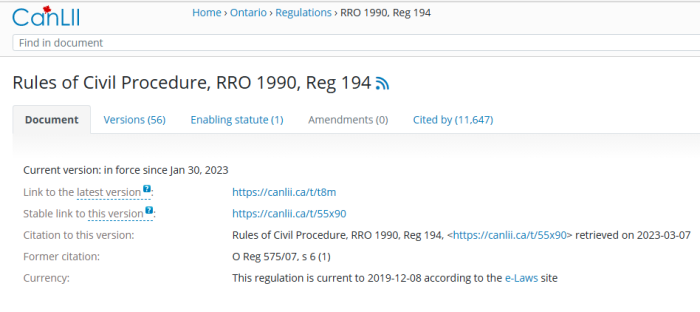
This case may be dead on arrival for a very simple reason: the Court may not be allowed to hear it at all, if there are other agreements in place.
To Any Party on a Question of Law
.
21.01 (1) A party may move before a judge,
.
(a) for the determination, before trial, of a question of law raised by a pleading in an action where the determination of the question may dispose of all or part of the action, substantially shorten the trial or result in a substantial saving of costs; or
[Rule 21.01(3)(a)]
(3) A defendant may move before a judge to have an action stayed or dismissed on the ground that,
Jurisdiction
(a) the court has no jurisdiction over the subject matter of the action;
As we saw in the recent Federal Court case, the majority of the Plaintiffs were actually subjected to Section 236 of the FPSLRA, or Federal Public Sector Labour Relations Act. Since it specifically barred litigation as a workplace solution, the Court lacked jurisdiction to hear their arguments.
Considering that the Plaintiffs here work for various Municipal Governments, and most are probably unionized, this lawsuit will likely get struck for the same reasons. Unions typically have a grievance process — such as arbitration — built into their collective bargaining agreements. Ontario Procedure Rules allow for cases to be dismissed if there’s no jurisdiction.
Of course, their lawyer should know this, right?
After all, this is why the majority of Plaintiffs in the Federal case were prevented from seeking remedies in Court. And that ruling was just 2 weeks ago.
2. Challenge Should Probably Be Done As Judicial Review
Another major issue with the Federal lawsuit was that the wrong paperwork was filed. If challenging a specific order, it’s routinely done by way of Application for Judicial Review, and not as a Statement of Claim. Again, their lawyer should be aware of this, correct?
3. Rules Of Civil Procedure Not Followed In Drafting Claim
To Any Party on a Question of Law
21.01(1) A party may move before a judge,
(a) for the determination, before trial, of a question of law raised by a pleading in an action where the determination of the question may dispose of all or part of the action, substantially shorten the trial or result in a substantial saving of costs; or
(b) to strike out a pleading on the ground that it discloses no reasonable cause of action or defence,
Rules of Pleading — Applicable to all Pleadings
Material Facts
25.06(1) Every pleading shall contain a concise statement of the material facts on which the party relies for the claim or defence, but not the evidence by which those facts are to be proved.
Pleading Law
25.06(2) A party may raise any point of law in a pleading, but conclusions of law may be pleaded only if the material facts supporting them are pleaded.
Documents or Conversations
25.06(7) The effect of a document or the purport of a conversation, if material, shall be pleaded as briefly as possible, but the precise words of the document or conversation need not be pleaded unless those words are themselves material.
Nature of Act or Condition of Mind
25.06(8) Where fraud, misrepresentation, breach of trust, malice or intent is alleged, the pleading shall contain full particulars, but knowledge may be alleged as a fact without pleading the circumstances from which it is to be inferred.
The Ontario Rules of Civil Procedure lay out how pleadings are to be done. Similar rules exist for all Courts, although the numbering differs.
A Claim has to plead the facts that are alleged in a case. It’s not enough to simply make accusations. Instead, the person drafting the document has to lay out how they know these things to be true. There must also be sufficient particulars (a.k.a. “specifics”) so that the opposing side can understand the case they must address.
However, Galati doesn’t do that in a lot of his cases. He’ll make plenty of allegations, but won’t provide the necessary information so that they can be addressed. This is (partly) why so many of his cases get struck by the Courts.
If a pleading can’t be written in a coherent and intelligible manner, the Court will either order it to be redone, or possibly throw it out altogether.
4. Many Claims Outside Jurisdiction Of Civil Court
[52] The defendants submit that the NOCC pleads to a number of claims that are improper in a civil action. In part, the defendants point to the following elements of the NOCC as inappropriate:
a) alleging criminal conduct;
b) seeking a declaration that the preponderance of the scientific community is of the view that masks are ineffective in preventing transmission;
c) seeking a declaration that the motive and execution of the COVID-19 prevention measures by the World Health Organization are not related to a bona fide “pandemic”;
d) seeking a declaration that administering medical treatment without informed consent constitutes experimental medical treatment which is contrary to the Nuremberg Code, the Helsinki Declaration and is a crime against humanity under the Criminal Code of Canada;
e) seeking a declaration that the unjustified, irrational, and arbitrary decisions of which businesses would remain open, and which would close, as being “essential”, or not, was designed and implemented to favour mega-corporations and to de facto put most small businesses out of business; and
f) seeking a declaration that the measures of masking, social distancing, PCR testing, and lockdowns are not scientifically based, and are based on a false and fraudulent use of the PCR test.
Both the Action4Canada suit and the Federal case were struck in part because they sought remedies that no Civil Court can realistically grant. This includes rulings based on international agreements, criminal allegations, and scientific declarations.
It’s worth pointing out that the pending Motion to Strike in the Vaccine Choice Canada suit is being brought partially for the same reasons.
Instead of taking these rulings to heart, Galati is attempting to reargue them in this Ontario EMS workers case. He’s filing content that has specifically been tossed, and more than once. This Claim will be struck for the same reason.
5. Ontario EMS Literally A Clone Of Federal Lawsuit
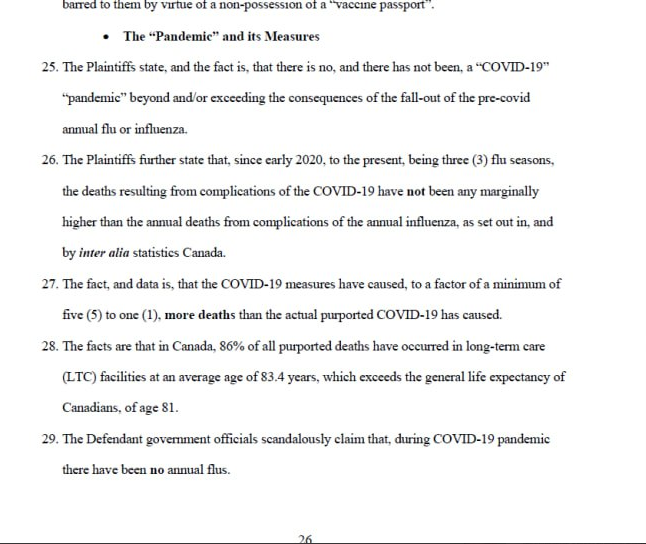
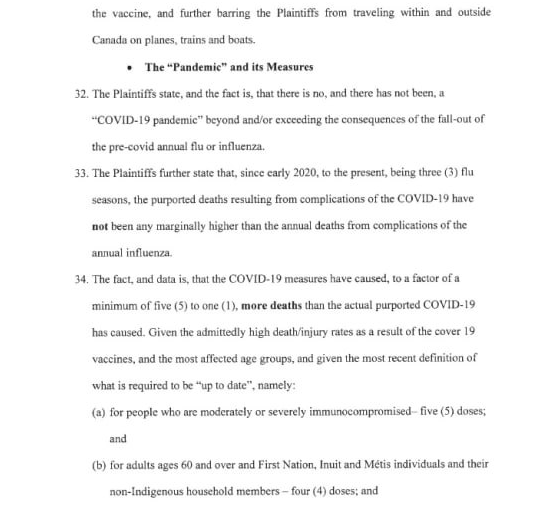
Page 26 of Ontario EMS, Page 32 of Federal:
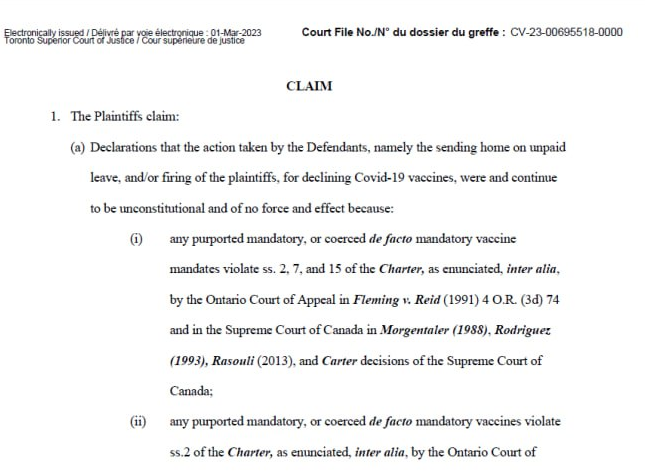
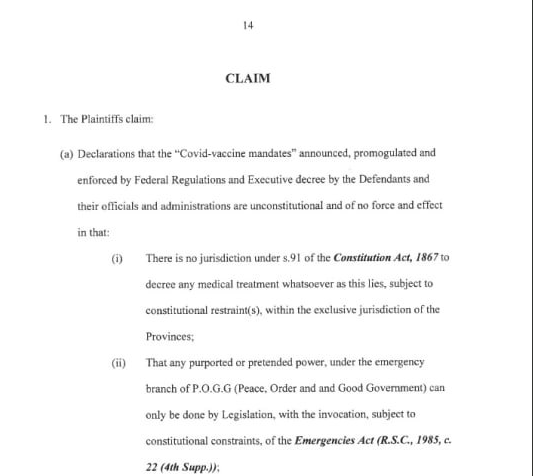
First paragraph in both versions:
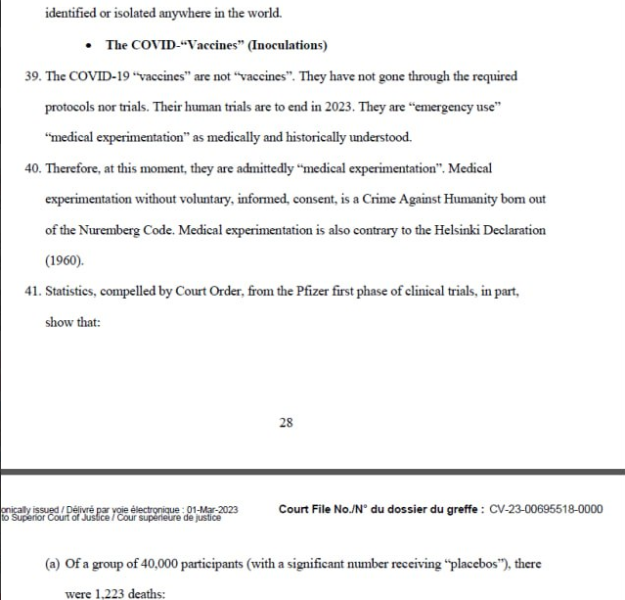
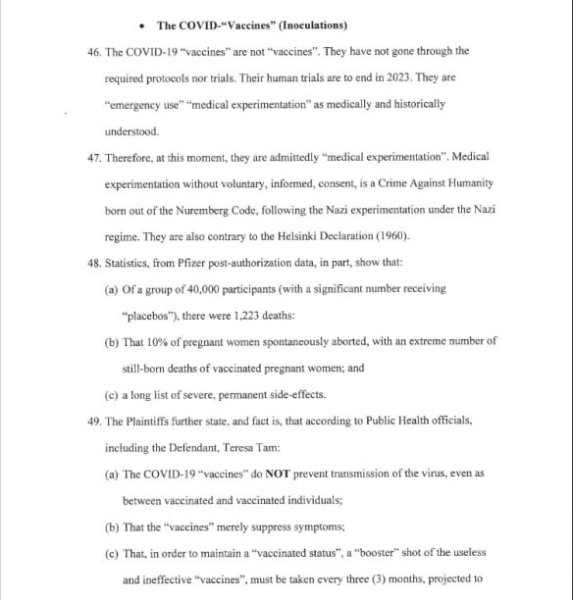
Vaccines are apparently not really vaccines:
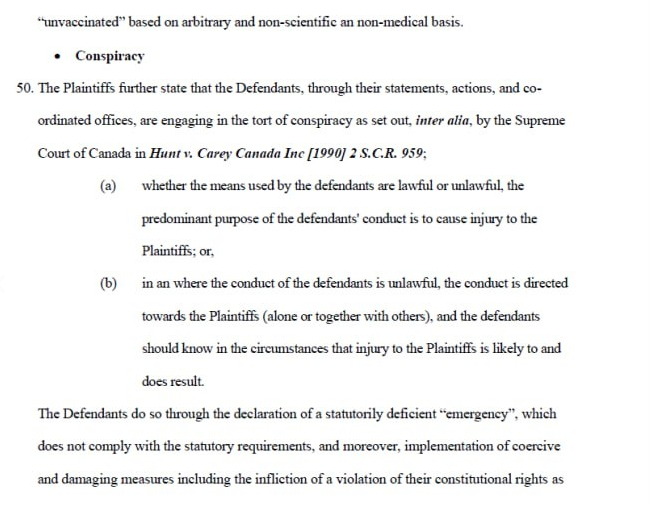
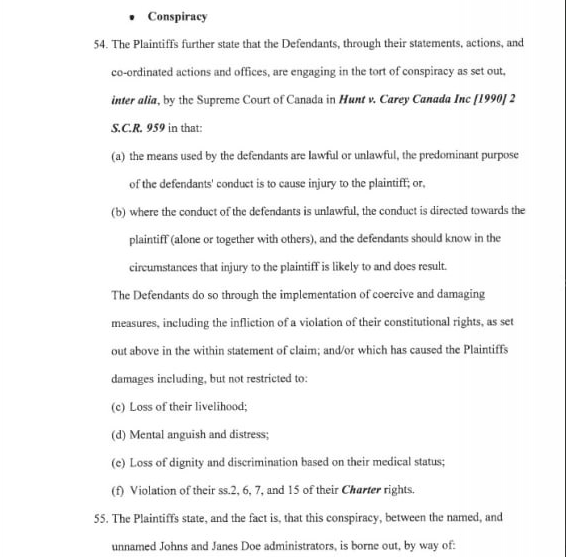
The tort of conspiracy:
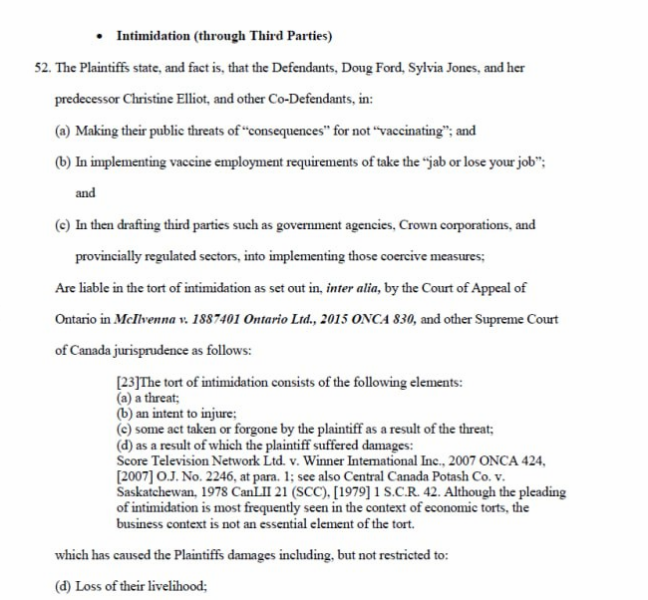
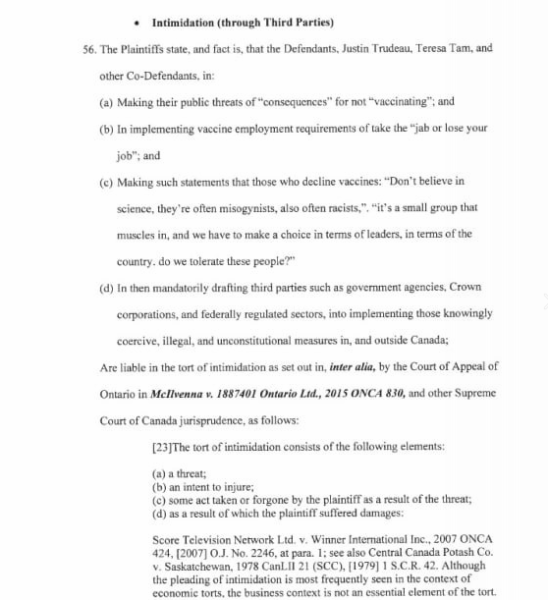
Tort of intimidation:
From looking at the 2 Claims, a rough estimate would be that about 90% of the Federal worker case has been cut and pasted into the Ontario EMS one. Changes are minimal, and mostly cosmetic. Do clients know that they’re paying for second hand work? Do they know that Judges have already ruled on these issues?
6. Plaintiffs Being Recycled In This Suit?
Most people won’t remember that Police On Guard (POG) helped initiate an Application in Ontario back in April 2021. Like many of Galati’s cases, this has remained dormant since then. However, a few names stick out.
- Matthew Blacklaws
- Sgt. Julie Evans
- Len Faul
These 3 are listed both in the stale-dated POG challenge, and in this Ontario EMS case. It’s unclear why this has happened.
Also, this more recent suit contains plenty of Plaintiffs listed simply as “John Doe” or “Jane Doe”. As such, it’s often unclear who is a new litigant. This is a waste of everyone’s time. If you are coming to Court and asking for money, you need to identify yourself.
7. Sheer Number Of Parties Sued A Problem
To understand how much litigation would be involved, just consider how many parties have been sued. Granted, some can be represented by the same lawyer (such as a city and its Police Chief or Fire Chief). That said, there are going to be a lot of lawyers involved, and the costs will easily get into the 6 or 7 figures. Here is the list.
- HIS MAJESITY THE KING
- Solicitor General of Ontario
- Town of Ajax
- Town of Ajax Fire Department (Fire Chief Aaron Burridge) City of Cambridge
- City of Cambridge Fire Department (Fire Chief Brian Arnold)
- City of Greater Sudbury
- City of Guelph, City of Guelph Fire Department (Fire Chief Dave Elloway)
- City of Hamilton
- City of Hamilton Police
- City of Hamilton Police Chief (Frank Bergen)
- City of Hamilton Fire Department (Fire Chief David Cunliffe)
- City of Markham
- City of Markham Fire Department (Fire Chief Adam J. Grant)
- City of Mississauga
- City of Mississauga Fire Department (Fire Chief Deryn Rizzi)
- City of Ottawa
- City of Ottawa Police
- City of Ottawa Police Chief (Eric Stubbs)
- City of Ottawa Fire Department (Fire Chief Paul Hutt)
- City of Pickering
- City of Pickering Fire Department (Fire Chief Steve Boyd)
- City of Toronto
- City of Toronto Police
- City of Toronto Chief of Police (James Ramer)
- City of Toronto Fire Service (Fire Chief Matthew Pegg)
- Toronto District School Board
- Toronto Transit Commission
- Toronto Transit Commission Chair (Jon Burnside)
- City of Windsor
- City of Windsor Fire Department (Fire Chief Stephen Laforet)
- Town of Orangeville
- City of St. Catharines
- Regional Municipality of Durham
- York Region
- York Regional Police
- York Regional Police Chief (Jim MacSween)
- City of Niagara Falls
- Niagara Regional Police
- Niagara Regional Police Chief (Bryan MacCulloch)
- Town of Oakville
- Town of Oakville Fire Department (Fire Chief Paul Boissonneault)
- Peel Region
- Peel Regional Police
- Peel Regional Police Chief (Nishan Duraiappah)
- Town of Whitby
- Town of Whitby Fire Department (Fire Chief Mike Hickey)
- Municipality of Leamington
For (somewhat) of a reference point, consider the $12.75 million defamation lawsuit that Galati brought on behalf of Kulvinder Gill and Ashvinder Lamba against 23 parties. After it was dismissed as a SLAPP, they were ordered to pay over $1.1 million in costs. This suit could potentially top that.
It’s entirely possible that there will be 15-20 lawyers who show up to defend against this lawsuit. Plaintiffs need to know that cost awards can be very steep.
8. Similar Retainer Requirements For Both Cases
There was a $1,500 retainer fee to be represented in the Ontario EMS case, if this form is for real. Also, there’s a form available listing a $1,000 retainer for the Federal case.
A source who claimed to be friends with a Federal employee claimed that Plaintiffs were actually being charged $2,000 each to be represented. If this is true, then the 600+ employees would have handed over more than $1.2 million for fees.
9. Some Final Thoughts
This has been a rudimentary review of the most recent anti-lockdown suit. The pleadings are seriously defective, and it will never make it to Trial.
And again, it’s essentially a copy and paste version of the Federal Claim that was recently struck. Clients aren’t just paying for secondhand work. Instead, they’re paying for secondhand work that has already been thrown out by the Federal Court, and the B.C. Supreme Court.
Claims that are found to be “bad beyond argument” don’t suddenly become valid simply because they are refiled in another jurisdiction.
Anyhow, most readers are probably aware by now that this site has been sued for millions of dollars, simply for exposing the anti-lockdown grifts that are going on in Canadian Courts. For some strange reason, people seem to think that it’s a “private” matter to publicly solicit donations for these lawsuits. This article will likely lead to another suit because of “muh racism”, or something.
If the Ontario EMS case ever is heard in Court, updates will be provided.
ONTARIO EMS WORKERS:
(1) Ontario EMS Statement Of Claim
VACCINE CHOICE CANADA COURT DOCUMENTS:
(1) VCC – Statement Of Claim Unredacted
(2) VCC – Discontinuance Against CBC
(3) VCC – Mercer Statement Of Defense
(4) VCC – Mercer Affidavit Of Service
(5) VCC – Requisition For CPC Motion To Strike
VACCINE CHOICE CANADA LAWSUIT (2019):
(1) VCC – Statement Of Claim, October 2019 Lawsuit
ACTION4CANADA COURT DOCUMENTS:
(1) A4C Notice of Civil Claim
(2) A4C Response October 14
(3) A4C Legal Action Update, October 14th 2021 Action4Canada
(4) A4C Notice of Application January 12
(5) A4C Notice of Application January 17
(6) A4C Affidavit Of Rebecca Hill
(7) A4C Response VIH-Providence January 17
(8) A4C Response to Application BC Ferries January 19
(9) https://action4canada.com/wp-content/uploads/Application-Record-VLC-S-S217586.pdf
(10) https://drive.google.com/file/d/1BfS_MyxA9J11WeYZmk8256G7GsWEFZ62/view
(11) https://www.canlii.org/en/bc/bcsc/doc/2022/2022bcsc1507/2022bcsc1507.html
(12) A4C Notice of Discontinuance Federico Fuoco Fire Productions
(13) A4C Notice of Discontinuance Amy Muranetz
(14) A4C Notice Of Appeal September 28 2022
FEDERAL VAXX PASS CHALLENGE
(1) https://policeonguard.ca/wp-content/uploads/2022/06/Filed-SOC.pdf
(2) Federal Court Vaccine Mandate Challenge
(3) Federal Vaccine Passport Challenge Retainer Agreement
(4) Federal Court Vaccine Mandate Challenge Motion To Strike
(5) Federal Court Vaccine Mandate Challenge Affidavit Of Service
(6) Federal Court Vaccine Mandate Challenge Responding Motion Record
(7) Federal Court Of Canada Rules
(8) https://www.laws-lois.justice.gc.ca/eng/acts/F-7/page-3.html#docCont
(9) https://www.laws-lois.justice.gc.ca/eng/acts/P-33.3/page-13.html#h-406405
(10) https://decisions.fct-cf.gc.ca/fc-cf/decisions/en/item/522970/index.do
(11) T-1089-22 Federal Court Decision On Motion To Strike
(12) https://www.canlii.org/en/ca/fct/doc/2023/2023fc252/2023fc252.html
(13) https://canucklaw.ca/wp-content/uploads/Federal-Vaccine-Passport-Challenge-Retainer.pdf
POLICE ON GUARD/OFFICERS:
(1) Notice Of Application — April 20, 2021
POLICE ON GUARD CORPORATE DOCUMENTS:
(1) Police On Guard Incorporation
(2) Police On Guard Registered Office & Directors
(3) Police On Guard Directors
(4) Police On Guard Bylaws
(5) Police On Guard Directors Later
ONTARIO STUDENTS/CHDC:
(1) Notice Of Application — April 20, 2021, Masks On Students
(2) Schools – Rule 2.1.01 Decision
(3) Schools — Notice Of Appearance Robert Kyle
(4) Schools — Notice Of Appearance Halton Durham
CHD CANADA CORPORATE DOCUMENTS:
(1) Childrens Health Defense Canada Registered Office
(2) Childrens Health Defense Canada Incorporation
(3) Childrens Health Defense Registered office & Directors
(4) Childrens Health Defense Canada Annual Return
KULVINDER GILL/ASHVINDER LAMBA CASE:
(1) Gill/Lamba Defamation Lawsuit December 2020
(2) Gill/Lamba Factum Of Medical Post Tristan Bronca
(3) Gill/Lamba Case Dismissed As A SLAPP
(4) Gill/Lamba Notice of Appeal and Appellants’ Certificate
(5) Gill/Lamba Appeal – Notice of Intention to Dismiss Appeal for Delay, May 12, 2022
(6) Gill/Lamba July 15 Letter To Obtain New Counsel
(7) Gill/Lamba Case Conference Brief July 29, 2022
(8) Gill/Lamba Endorsement New Counsel Cost Submissions August 3, 2022
(9) Gill/Lamba Case $1.1 Million In Costs Ordered October 31, 2022
KULVINDER GILL/ATTARAN/UOTTAWA CASE
(1) Gill-Attaran Statement Of Claim
(2) Gill Attaran Affidavit Of Service
(3) Gill-Attaran Notice Of Intent
Like this:
Like Loading...
